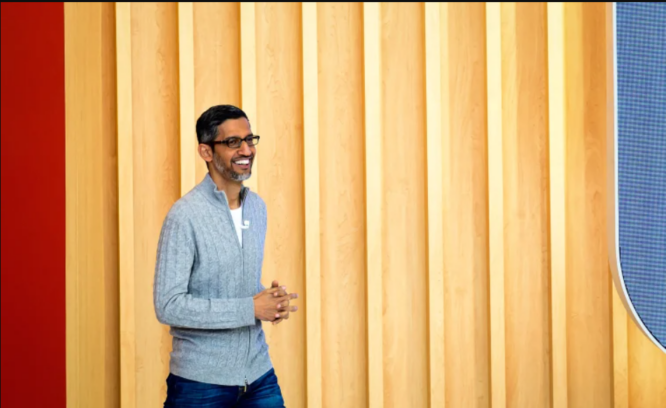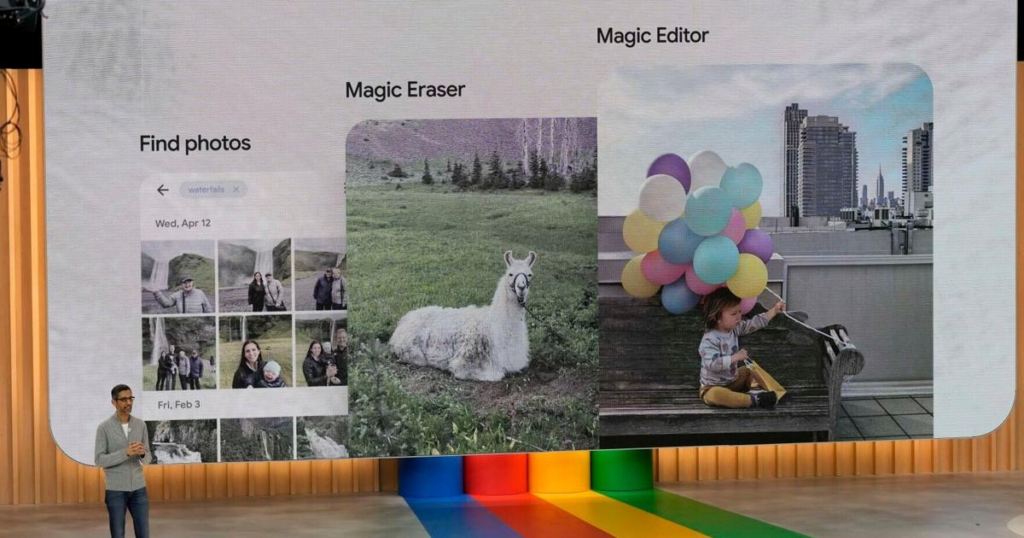Google’s AI-enhanced search engine 2023

In response to one of the biggest challenges to its long-held position as the internet’s major gateway, Google announced plans to inject its dominating search engine with more powerful artificial intelligence technology on Wednesday.
Three months after Microsoft’s Bing search engine started using similar technology to power the artificially intelligent chatbot ChatGPT, which has created one of Silicon Valley’s biggest buzzes since Apple released the first iPhone 16 years ago, Google’s search engine is gradually changing.
Alphabet Inc.-owned Google has been testing Bard, a talking chatbot. That product, driven by generative AI like ChatGPT, is only available to waitlisted users. Google revealed Wednesday that Bard will be available to anyone in over 180 countries and more languages than English.
Bard will add 40 languages after starting with Japanese and Korean.
Google’s search engine, which has formed the foundation of a $220 billion digital advertising empire, is ready to test AI.
“We are at an exciting inflection point,” Alphabet CEO Sundar Pichai told a crowded developers’ conference, referencing AI throughout. “We’re reinventing everything, including search.”
Google’s Gmail will have a “Help Me Write” feature that can write lengthy emails in seconds and a “Magic Editor” photo editor.

Google’s prized jewel, the search engine, will slowly adopt AI.
Google must strike a balance between staying ahead of the curve and maintaining its reputation for accurate search results, which could be threatened by artificial intelligence’s tendency to make up facts.
During early testing of Bard, which like ChatGPT uses generative AI technology, “hallucinations”—deceptively plausible replies to questions—have occurred.
Google will try generative AI in search results in a new search lab where U.S. residents can join a queue. Traditional connections to external websites with extra information about searched topics are also tested. Google may take weeks to invite queue members to test the AI-injected search engine.
Google promises that AI-generated summaries will seem more factual than conversational, unlike Bard and ChatGPT, which are meant to sound more human. Google is adding safeguards to prevent its AI from answering sensitive health and finance inquiries like “Should I give Tylenol to a 3-year-old?” Google will direct users to authoritative websites in certain cases.
Google doesn’t know when it will offer generative AI findings to everyone. Since Microsoft added AI to Bing, which trails Google, the Mountain View, California, corporation has been under pressure to show how its search engine would preserve its advantage.

Alphabet’s stock immediately plummeted, but it has now recovered to where it was before Bing unveiled its AI aspirations. Recently, The New York Times reported that Samsung is considering dropping Google as the default search engine on its widely used smartphones, raising the possibility that Apple might do the same with the iPhone unless Google can demonstrate its ability to adapt to an AI-driven revolution.
Alphabet’s shares gained 4% to $111.75, the best close since Bing merged with ChatGPT in early February.
Google is using the next iteration of a vast data collection called a “large language model” (LLM) to make Bard smarter as it integrates AI into its search engine. Bard uses PaLM, the Pathways Language Model. The next-generation PaLM2 and Multitask Unified Model (MUM) will power Google’s search engine AI.
Google’s search engine will utilize generative AI to discover answers, but a new tool will soon be available to everyone. Google will include a “Perspectives” filter that will show what people are saying online about a search topic. The new option will join news, picture, and video search filters.
Google presented its first foldable Pixel smartphone at its annual tech expo, highlighting its AI power. Google’s first bending smartphone comes nearly three years after Samsung, the leading Android smartphone manufacturer, debuted its first bendable model.
Due to their $1,500–$2,000 pricing, foldable phones have remained a niche market. According to International Data Corp., 14 million foldable phones were sold worldwide last year, representing 1% of smartphone shipments.
Google’s $1,800 foldable Pixel phone will launch next month. It will hinge and contain AI.
